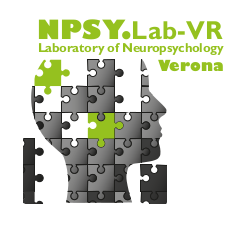The research group for BAyesian Statistics In Cognitive Sciences and Neuropsychology (BASIC-NPSY) has as main purpose the study, development and dissemination of Bayesian statistical approaches for cognitive neuroscience and neuropsychology.
The claim for the use of more rigorous experimental methodologies and statistical analyses has been present in the literature for a number of decades (Cohen, 1990, 1994). However, it is only in recent years that there has been a strong replicability crisis in the field (Pashler and Wagenmakers, 2012; Cumming, 2008; Ioannidis, 2014; Open Science Collaboration, 2015) and the frequentist-based statistical inference such as the Null-Hypothesis Significance Testing (NHST) has been a key aspect of this debate.
More and more researchers are using Bayesian approaches, which radically change the perspective on data analysis and experimental design. These approaches are a reliable alternative which can be used to drive inferences offering several advantages compared to the frequentist approach (Kruschke, 2010; Wagenmakers, 2007; Herzog and Ostwald, 2013). However, nowadays, sparse applications of this methodology can be found in the field of cognitive neuroscience and neuropsychology.
The BASIC-NPSY research group aims at promoting an open-science approach for the application and dissemination of Bayesian methodologies in the various aspects of cognitive and neuropsychological sciences.
In particular, the BASIC-NPSY research group will focus its activity in the:
– dissemination of Bayesian approaches to data analysis and inference
– promotion of open-science approach to the bayesian applications in cognitive sciences and neuropsychology
– the development of novel Bayesian applications to cognitive sciences and neuropsychology
To apply for membership, please contact the laboratory at this email address: npsylab.vr@gmail.com
or call (+39)0458028401 (+39)0458028407 (Dr. Michele Scandola)
Members:
Dr. Michele Scandola (coordinator, University of Verona, Department of Human Sciences)
Dr. Marco Tullio Liuzza (University Magna Graecia of Catanzaro, Department of Medical Surgery Sciences)
Dr. Daniele Romano (University of Milano-Bicocca, Department of Psychology)
Dr. Alessio Toraldo (University of Pavia, Department of Brain an Behavioural Sciences)
Activities:
11-15/09/2018 – Bayesian Statistics for Social, Cognitive and Human Sciences (TBD) – Dept. of Human Sciences, University of Verona, Italy
08/05/2018 – A practical introducton to Bayesian Statstics (Michele Scandola) – Dept. of Human Sciences, University of Verona, Italy
16/04/2018 – The P-value Crisis (Michele Scandola) – Dept. of Human Sciences, University of Verona, Italy
28/11/2016 – 2/12/2016 – General Linear Mixed Models: An Introduction (Michele Scandola) – Dept. of Psychology, “La Sapienza” University of Rome, Italy
21/11/2016 – 24/11/2016 – General Linear Mixed Models: An Introduction (Michele Scandola) – Dept. of Human Sciences, University of Verona, Italy
13/10/2015 – Introduction to Bayesian Statistics (Michele Scandola) – Dept. of Psychology, “La Sapienza” University of Rome, Italy
7/10/2015 – Introduction to Bayesian Statistics (Michele Scandola) – Dept. of Human Sciences, University of Verona, Italy
Publications:
Scandola & Romano (2021). Bayesian Multilevel Single Case Models using ‘Stan’. A new tool to study single cases in Neuropsychology. Neuropsychologia (in print)
References:
Cohen, J. (1990). Things I have learned (so far). American Psychologist, 45(12), 1304–1312.
Cohen, J. (1994). The earth is round (p < .05). American Psychologist, 49(12), 997–1003. Retrieved from http://psycnet.apa.org/journals/amp/49/12/997/
Cumming, G. (2008). Replication and p Intervals: p Values Predict the Future Only Vaguely, but Confidence Intervals Do Much Better. Perspectives on Psychological Science, 3(4), 286–300. https://doi.org/10.1111/j.1745-6924.2008.00079.x
Herzog, S., & Ostwald, D. (2013). Experimental biology: Sometimes Bayesian statistics are better. Nature, 494(7435), 35. https://doi.org/10.1038/494035b
Ioannidis, J. P. A. (2014). How to Make More Published Research True. PLoS Medicine, 11(10), e1001747. https://doi.org/10.1371/journal.pmed.1001747
Kruschke, J. K. (2010). Bayesian data analysis. Wiley Interdisciplinary Reviews: Cognitive Science, 1(5), 658–676. https://doi.org/10.1002/wcs.72
Open Science Collaboration. (2015). Estimating the reproducibility of psychological science. Science, 349(6251), aac4716. https://doi.org/10.1126/science.aac4716
Pashler, H., & Wagenmakers, E.-J. (2012). Editors’ Introduction to the Special Section on Replicability in Psychological Science: A Crisis of Confidence? Perspectives on Psychological Science, 7(6), 528–530. https://doi.org/10.1177/1745691612465253
Wagenmakers, E.-J. E. (2007). A practical solution to the pervasive problems of p values. Psychonomic Bulletin & Review, 14(5), 779–804. Retrieved from http://link.springer.com/article/10.3758/BF03194105
